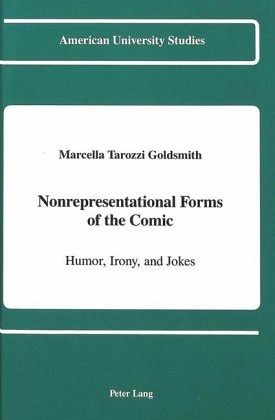Nicht lieferbar

Nonrepresentational Forms of the Comic
Humor, Irony, and Jokes
Versandkostenfrei!
Nicht lieferbar
This book examines three different comical forms: humor, irony, and jokes from the philosophical and the ethical points of view. The theme connects these forms in their linguistic expression but distinguishes them by pointing out the differences in their social function. The result of this analysis is that humor reveals itself as being the least social form of the comic while jokes reflect the highest level of socialization. Examination of the social function of the comic highlights the rapport between the comical form and transgressive modes of expression.



